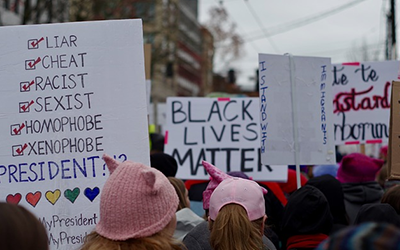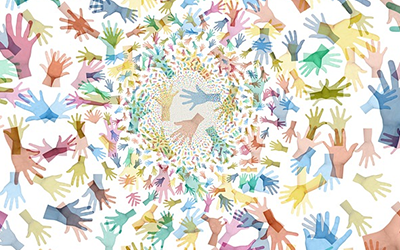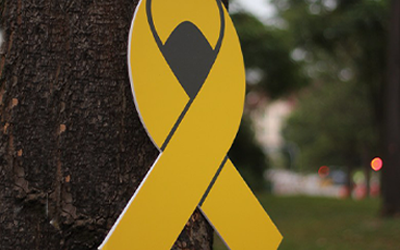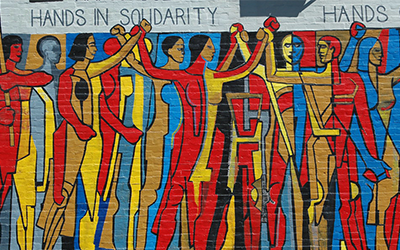International Women’s Day 2022: Solidarities at Work
Acknowledging the challenges posed by the persistence of gender and racial inequalities fuelled by ever more precarious economies and societies, we came together to discuss the possibilities of multiplying solidarities, at work and beyond. This is particularly important now against the backdrop of state and organisational responses to Covid-19, the impact of Brexit, but also against stubborn work practices that make certain bodies matter more than others, be it at work, home, or the street.
Throughout history, feminists have been forging solidarity to disrupt sites of power and privilege, redraw the boundaries of inclusion and exclusion and access to resources. Following in their footsteps, we are moving the conversation and practices further. This one-day online interdisciplinary conference brings together diverse voices on the complexities, complications, and configurations of working with and across intersections and the dilemmas that feminist activism and praxis present. The conference aims to extend conversations on existing challenges and opportunities while also giving rise to new possibilities.
A wide variety of academics and practitioners came together to discuss the importance of solidarities in an inclusive and purposeful manner.
The conference, taking place on Tuesday 8 March, was co-organised by GOP (gendered organisational practice), a research cluster within The Open University Business School, and GENIES (gender, intimacies, sexuality), a research stream that sits between the Faculty of Arts and Social Sciences and the Faculty of Business and Law at the OU, promising plenty of diverse and rich perspectives.
Please click the titles of each session to watch the individual recordings. Alternatively you can view the full playlist of all recorded sessions here.
Conference programme
13.50 - 14.35: Live seminar

Getting it wrong, right and wrong again(?) Journeying between ideology and praxis
In this presentation, OUBS Academic Cinzia Priola will touch upon the challenges encountered in attempts to ‘walk the talk’, journeying between feminist ideology and praxis. Without presuming the primacy of either, she will share a personal analysis of the possibilities of ‘doing’ feminist work in current times. She will reflect on intersectionality, our emphasis on categorisation (and which categories) and the ethical and methodological dilemmas posed by doing intersectional research as a white (migrant) woman. Chaired by Amna Sarwar.
14.35 - 15.20: Embodied Solidarities - Panel Discussion and Q&A

Finding my voice as a Kurdish woman migrant scholar
This talk, by Necla Acik, reflects her long-term work and activism as a European Kurdish feminist migrant scholar which in the pandemic has led to her engagement with the Kurdish Gender Studies Network (KGSN). The KGSN offers a virtual space for students, activists and academics across the globe to come together regularly to support each other, and exchange knowledge and experience related to Kurdish gender and sexuality studies. This work is indispensable given the marginalisation of Kurdish Studies in academia and the high risks of criminalisation associated with research on the Kurdish issue and with political activism in four parts of Kurdistan i.e. Turkey, Syria, Iraq and Iran. The network creates a unique space that empowers Kurdish gender studies scholars to find their voices and forge alliances and solidarities.

Women’s participation in online spaces: equality (re)imagined?
This talk, by OU Law School academic Olga Jurasz, discusses the rise of Internet and social media has created unprecedented opportunities for women’s participation in public spaces and in public life, but also new avenues for organising, campaigning, protesting. However, for women specifically, this has been tainted by the everyday realities of misogynistic and gender-based abuse online. Using contemporary examples from the UK and beyond, this talk will reflect on opportunities and challenges to women’s equal participation in online spaces and discuss what role, if any, law has in addressing this.

“People had to accept me as a boy”: Feminist Tomboy Childhoods and Trans Futurities”
This talk, by Jacob Breslow, re-thinks the ways in which trans childhoods are imagined in the current landscape of anti-gender and gender critical mobilisations. Focusing on memories of gendered embodiment within gender critical narratives of childhood, it subverts the work that childhood is asked to do, and instead orients these memories toward transfeminist solidarities. Chaired by Avi Boukli
15.30 - 16.00: Live seminar

Working with endometriosis: Encounters with precarity and policy as solidarity
This seminar, by OUBS academic Vickie Williams, explores the experiences of people working with endometriosis across several industries within the UK. Endometriosis is an unpredictable condition that can flare at any time, without notice of length or severity. People working with the condition must often learn to navigate the embodied precarity of endometriosis which can be challenging within traditional organisational structures and cultures where they are expected to minimise symptoms and conform to productive worker expectations. As such, people with endometriosis may be better suited to, and are often turning to, precarious work but this can create a double bind of its own and make them feel even less supported and protected. Current knowledge on the experience of working with the condition has largely been neglected within organization studies, as have the support interventions for people to remain and thrive in the work they have planned and often trained endlessly for. Protective and supportive workplace policy is therefore needed in solidarity with people who are working with endometriosis, as well as other menstrual health conditions that are also largely dismissed within the workplace. Chaired by Amna Sarwar
16.00 - 16.40: Pre-recorded webcast with live Q&A

Early pregnancy endings and the workplace
Jo Brewis and Ilaria Boncori. Although organization studies has an established and growing literature on the intersections between (post-)reproductive bodies and the workplace in the shape of research on menstruation, menopause, pregnancy, maternity and the menopause, it has paid almost no attention to terminations and miscarriages. Yet these experiences are extremely common and some women and transgender and non-conforming people will go through several miscarriages and/ or terminations during their working lives. As such we are committed to finding out more about what it is like to navigate an early pregnancy ending (defined as up to 24 weeks of completed gestation in the UK) whilst in paid employment of any kind, as well as paying close attention to differences like gender, ethnicity, disability and age.
16.40 - 17.30: Pre-recorded webcast with live Q&A

Solidarity across difference
Nela Smolovic Jones and Bontu Lucie Guschke. In contemporary times, in which many different groups of marginalized people need to continuously struggle for basic survival, justice and equality, practices of solidarity are paramount to create mutual commitments across different needs. But how can solidarity be practiced across such wide variety of experiences and standpoints without creating fragmentation or fortifying existing forms of domination and oppression? Taking inspiration from Black feminist and postcolonial conceptions of solidarity, Nela and Bontu will discuss if solidarity can and should be forged around commonalities or particularities, consider how we can make difference productive for critique and action, and finally, where to draw a line when it comes to inclusivity and solidarity, or, to borrow from Mouffe, how to differentiate between ‘adversaries’ and ‘enemies’?
18.30 - 19.30: Closing keynote with Professor Alison Pullen

Streets, Struggles and Solidarities
Street is a metaphor of the possibility of assembly but also a metaphor for the reality of discrimination. Public space is both ambivalent and open to possibility. Public space movements which reclaim the street such as Reclaim the Night is not just about the vital importance of physical security for feminized subjects but also about a material site for the political potential of the embodied collective living and working together in pursuit of the promise of equality. This is a question of the public expression and realization of solidarities and struggles across and within intersectional differences. The street is the public space not accounted for in the historical distinction between the public- masculine – and the private – feminine. Chaired by Nela Smolovic Jones.
